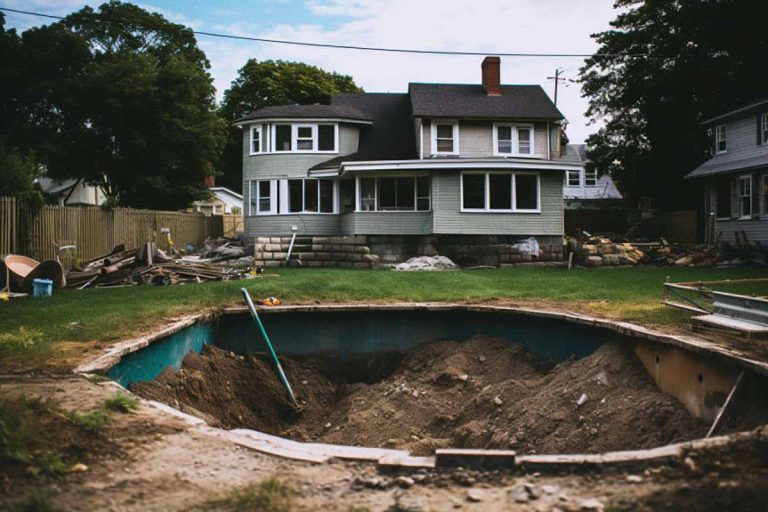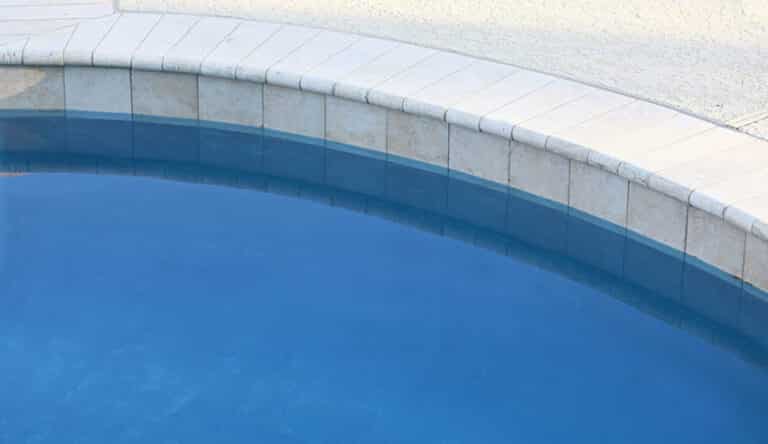Hot Tub Ozonator Pros And Cons
See the hot tub Ozonator pros and cons including what it does, if they are safe to use, maintenance tips and how ozonators compare to hot tub ionizers.
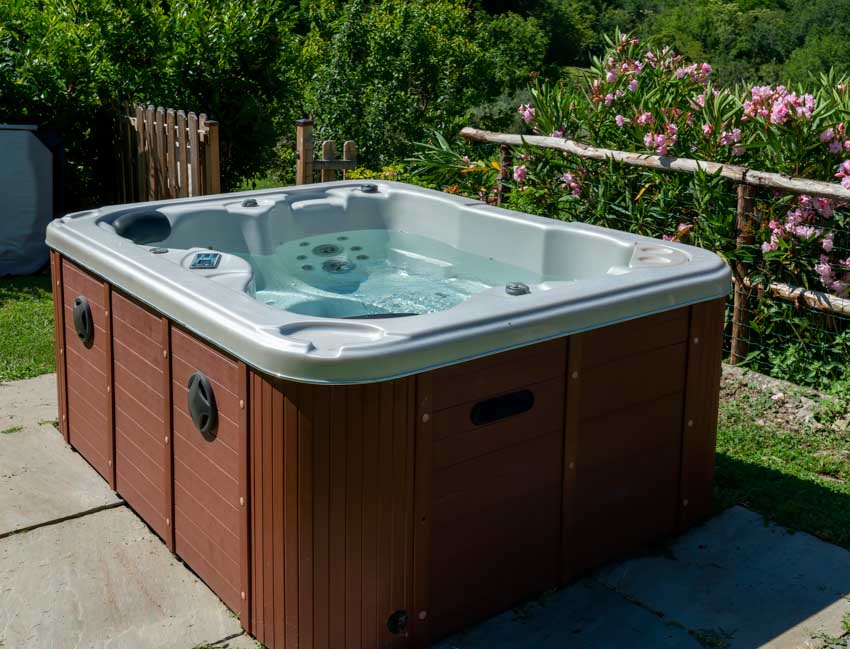
Ozone is energized oxygen and has the ability to kill bacteria and contaminants without using strong chemicals. While oxygen is O2, having two oxygen atoms, and keeps us alive as we breathe it in, ozone is O3, and the third oxygen atom gives it powerful properties.
When added to the water in your hot tub, ozone removes impurities and reduces the chemicals needed to keep the tub sanitary. A hot tub Ozonator is a device used to create ozone and inject the gas into your tub’s water.
This guide will discuss what an Ozonator does, hot tub Ozonator pros and cons, whether an Ozonator is safe for your hot tub, hot tub Ozonator maintenance, and hot tub ionizers versus Ozonators.
What Does An Ozonator Do?
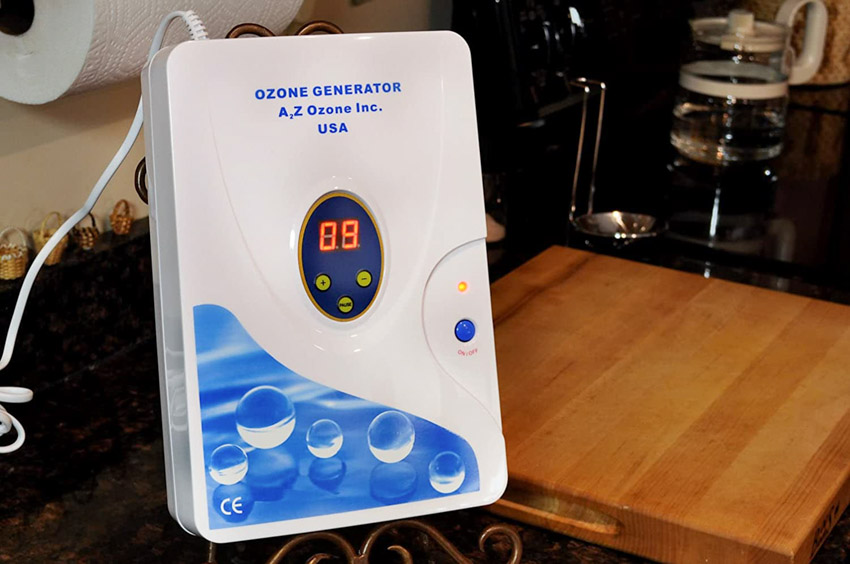
In order to make O3, an Ozonator splits oxygen molecules, O2, into separate free atoms of oxygen using ultraviolet (UV) light or a corona discharge (CD) unit. The now free oxygen molecules collide with oxygen in the water and bond creating O3, or ozone.
The Ozonator dispenses ozone gas into hot tub water, which attaches to dirt, grime, and contaminants in the water, such as lotions, soaps, makeup, sunscreen, dead skin, and bodily fluids.
Ozone also works with regular hot tub sanitizers such as chlorine and bromine to kill bacteria, germs, and viruses. It has the ability to break down unwanted chemicals and cause them to clump together and become trapped by the hot tub’s filter. The result is supposed to provide cleaner, clear water for a healthier and moisturizing soak.
Hot Tub Ozonator Pros
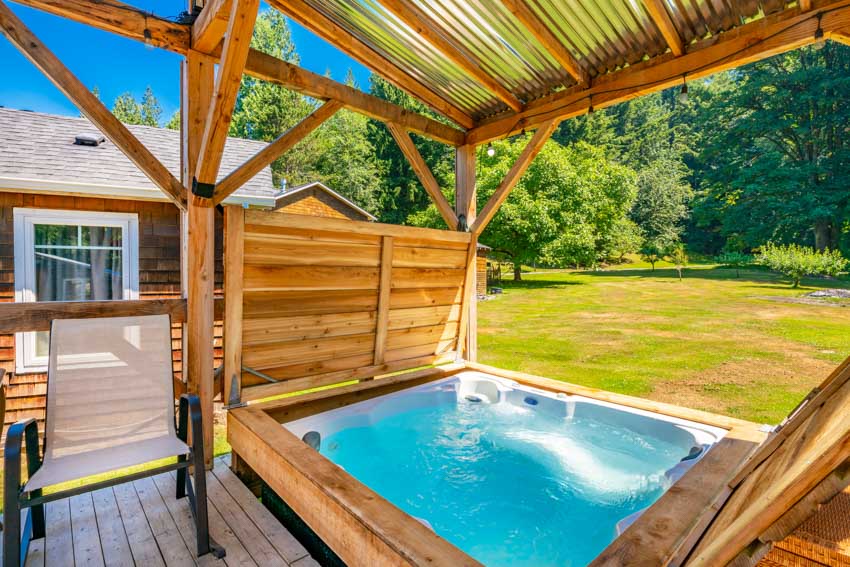
• Ozone’s cleansing properties allow fewer chemicals and sanitizer to be used in hot tubs, up to 25% less, saving money and reducing harsh cleaners
• Fewer chemicals and sanitizers also mean a safer, more comfortable soak for people with chemical sensitivities and allergies
• Ozone reduces odors from harsh chemicals
• Ozone works well with bromine, chlorine, and lithium
• Ozone prevents calcium in the water from chelating, which conditions the water and prevents calcium buildup in the equipment
• The hot tub water can be left for more extended periods due to the efficiency of the Ozonator, saving water and money. This can apply to the different hot tub sizes and the amount of water in them as well.
• Ozone is a powerful oxidizer and is up to 100 times stronger than chlorine
• Ozone also oxidizes chlorine-resistant water pollutants that may cause serious health issues for humans
• Ozonators are simple to maintain and use, and some models are easy to install
Hot Tub Ozonator Cons
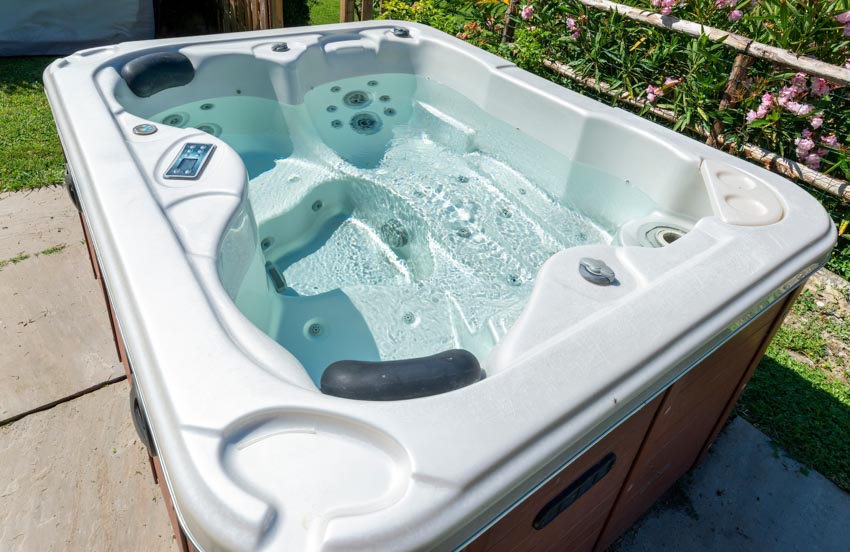
• In large amounts, ozone can cause lung irritation leading to coughing, throat irritation, chest discomfort, and temporary lung damage
• For hot tubs without a built-in Ozonator, installation can be timely, and not all hot tubs can accommodate an Ozonator
• Water infused with ozone only remains ozonated for 12 hours meaning the Ozonator has to be run frequently
• Frequent Ozonator use means replacing the Ozonator almost every three years
• When installing an Ozonator, the hot tub must be drained and filled with clean water, which is approximately 400 gallons. This is also the same predicament for homeowners who use this device for large swimming pool sizes.
Are Spa Ozonators Safe
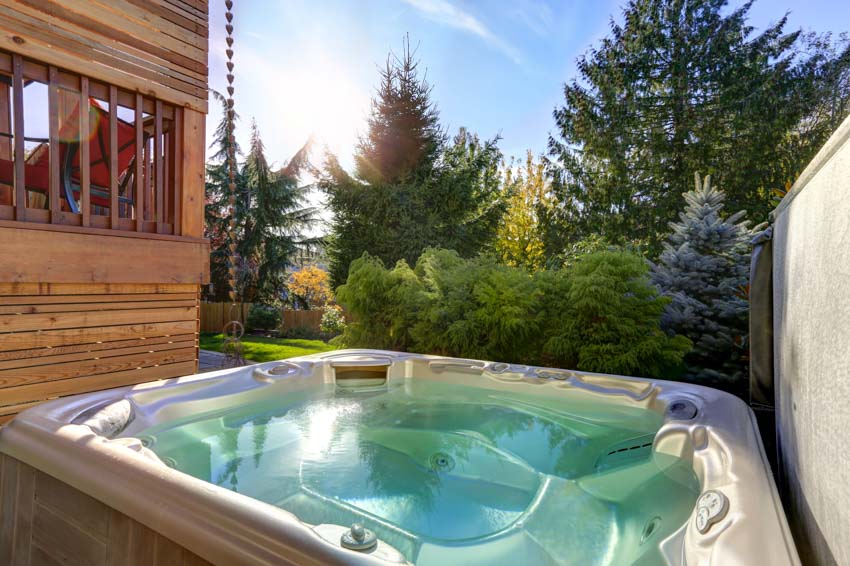
Ozone doesn’t contribute to air pollution, and the amount of ozone created by an Ozonator is minute and as safe as the ozone in the atmosphere. However, it’s important not to breathe in concentrated ozone gas.
Ozone Hot Tub Maintenance
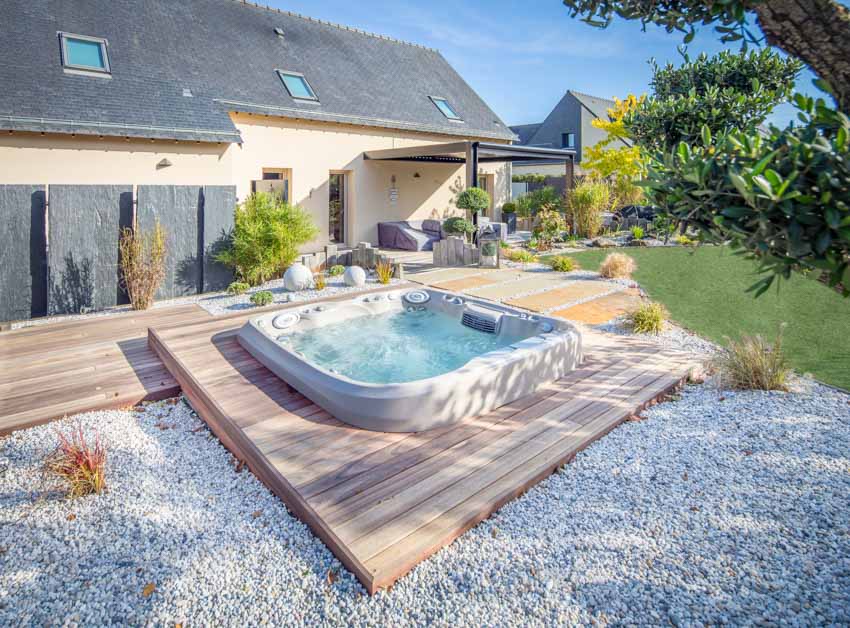
• Ensure the Ozonator is generating ozone by using a test kit that includes ozone test strips or a meter
• Keep watch for interruptions of the ozone delivery system by observing the injector
• Do regular inspections of the check valve, which prevents backflow, to be sure there are no leaks
Hot Tub Ionizer Vs. Ozonator
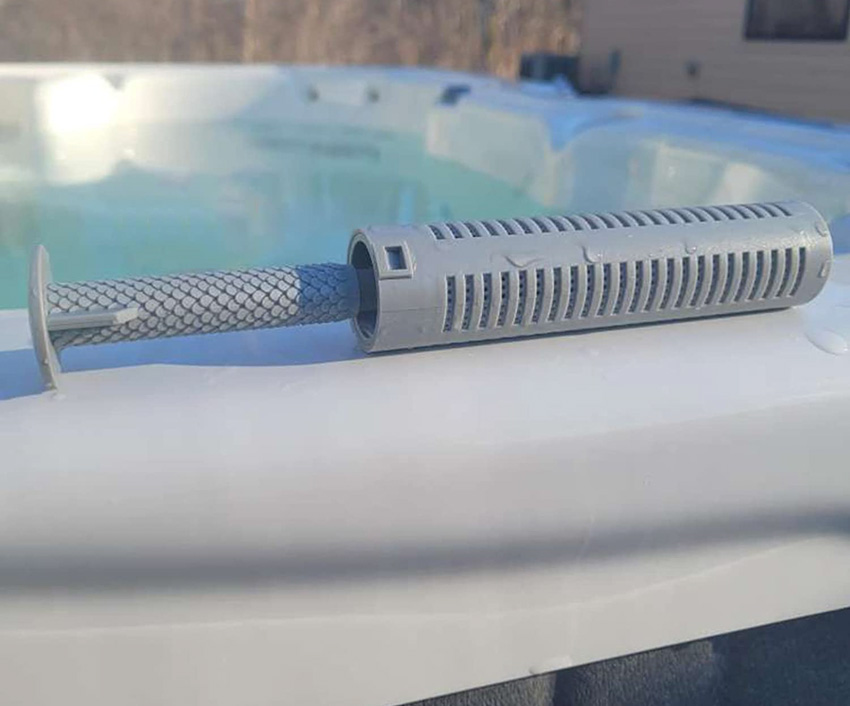
Ozonators and ionizers both clean hot tub water but not 100%. They still need to be supplemented with some chemicals and sanitizers. Ionizers work by causing an atom or molecule to lose one electron by using an electrical charge.
The remaining particles are called ions. Hot tub ionizers create ions derived from metals such as silver, copper, or zinc. The metals are ionized and singular atoms are released into the spa water. These ions kill bacteria immediately upon contact.
Ionization for killing germs is not a new process, and silver was used as far back as ancient times for purification. Like an Ozonator, hot tub water ionizers significantly reduce the need for chemicals to keep the water clean.
Overall, an Ozonator or ionizer is an excellent addition to any hot tub; it’s a natural cleaning device, economical, saves money from reducing chemicals needed, is long-lasting, and is a healthier solution for your hot tub. Enjoy a soak in fresh, soft water by installing a hot tub Ozonator or purchasing a hot tub with an Ozonator built-in.
See more related content in our article about salt water hot tub pros and cons on this page.


